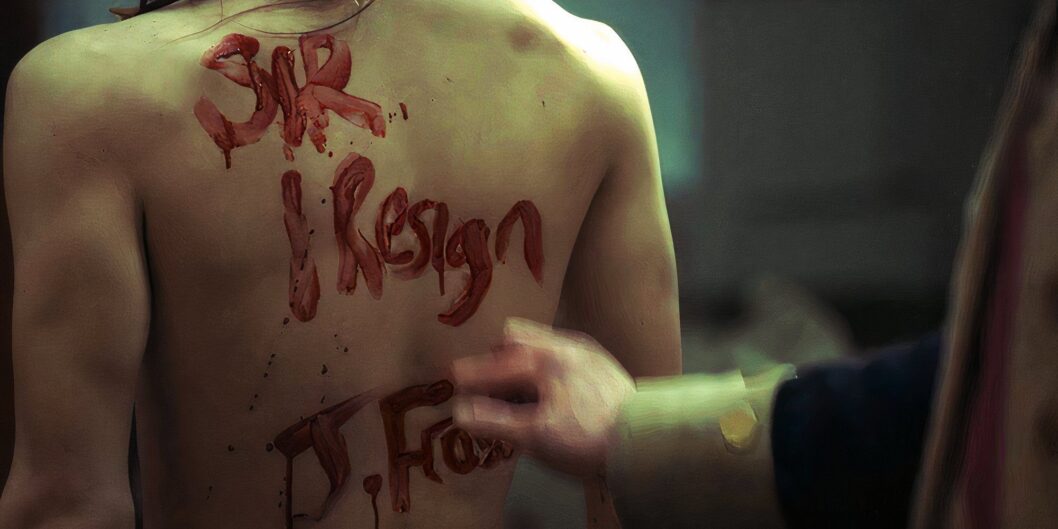Jamie Fraser’s Poignant Resignation in Outlander Season 7, Episode 15: A Deeper Meaning Uncovered
In a remarkable scene filled with emotion, the latest episode of the Starz series Outlander sees protagonist Jamie Fraser use an unexpected and visceral form of resignation that encapsulates both love and defiance. Season 7, Episode 15, titled "Written in My Own Heart’s Blood," showcases Jamie’s deep commitment to his wife, Claire, during a time of crisis.
A Dramatic Point of Decision
In this episode, Jamie, played by Sam Heughan, has recently been appointed brigadier general by George Washington and is expected to lead a battalion into the pivotal Battle of Monmouth. However, chaos ensues when Claire, portrayed by Caitríona Balfe, is critically injured on the battlefield, leaving Jamie enraged at the Continental Army’s priorities and desperate to protect his wife.
The turning point arrives when General Lee demands Jamie’s immediate presence, a call that infuriates him. In a moment of pure passionate defiance, Jamie utilizes Claire’s blood to scrawl the message "Sir, I resign. J. Fraser" on the back of the messenger. This stunning act serves as a dramatic statement, fully expressing the gravity of his feelings and the urgency of Claire’s condition.
The Significance of the Title
The title of the episode, "Written in My Own Heart’s Blood," reflects the powerful symbolism of Jamie’s action. While he physically wrote with Claire’s blood, metaphorically, he used his own heart’s blood. This moment transcends mere resignation; it encapsulates Jamie’s profound love and commitment to Claire, illustrating that she is his soulmate. As Jamie highlights that he is severing ties with the Continental Army in the most literal sense, it offers a poignant layer of meaning to the episode’s title.
Despite the violent imagery, this act remains poetically significant. The resignation demonstrates not just anger but love, showcasing the extent of Jamie’s devotion to Claire in the face of familial peril. This emotional depth distinguishes the episode, allowing fans to witness Jamie’s character evolve under intense circumstances.
Differences from the Source Material
Although the narrative aligns closely with Diana Gabaldon’s eighth novel, also titled Written in My Own Heart’s Blood, there are notable adaptations. In the book, Jamie writes his resignation on the messenger’s jacket rather than directly on his skin. This alteration in the adaptation creates a more striking visual for viewers—imagining a messenger returning to General Lee with a bloodstained back adds a layer of theatricality that enhances the drama. However, both versions convey the same emotional weight: Jamie’s prioritization of Claire’s safety over military obligation.
Impact on Jamie’s Character Arc
Jamie’s dramatic form of resignation emphasizes a significant turning point in his character. Historically portrayed as a key supporter of the revolutionary cause, his prioritization of Claire’s well-being over his military duties reveals a stark change in priorities. This act cements Jamie’s identity as a devoted husband willing to sacrifice his role for the safety of his wife, reinforcing the core theme of love dominating all else.
As viewers continue to follow Outlander, this narrative stride undoubtedly lays the groundwork for future episodes where the dynamics between personal love and public duty will further evolve. The finale of Season 7, scheduled for January 17, 2025, is poised to shed even more light on the ramifications of Jamie’s actions during this tumultuous period.
Conclusion: A Powerful Reflection on Love and Duty
The recent episode of Outlander serves as a compelling reminder of the conflicts between personal devotion and societal expectations. Jamie Fraser’s choice to resign through such a vivid act not only highlights the risks of war but profoundly underscores the lengths to which one will go for love. As the narrative progresses, fans are left pondering the implications of Jamie’s statement and what it means for the broader story of the couple amid a backdrop of historical turmoil. This complex character evolution not only engages audiences but may redefine how love and loyalty intersect in subsequent plot lines.









